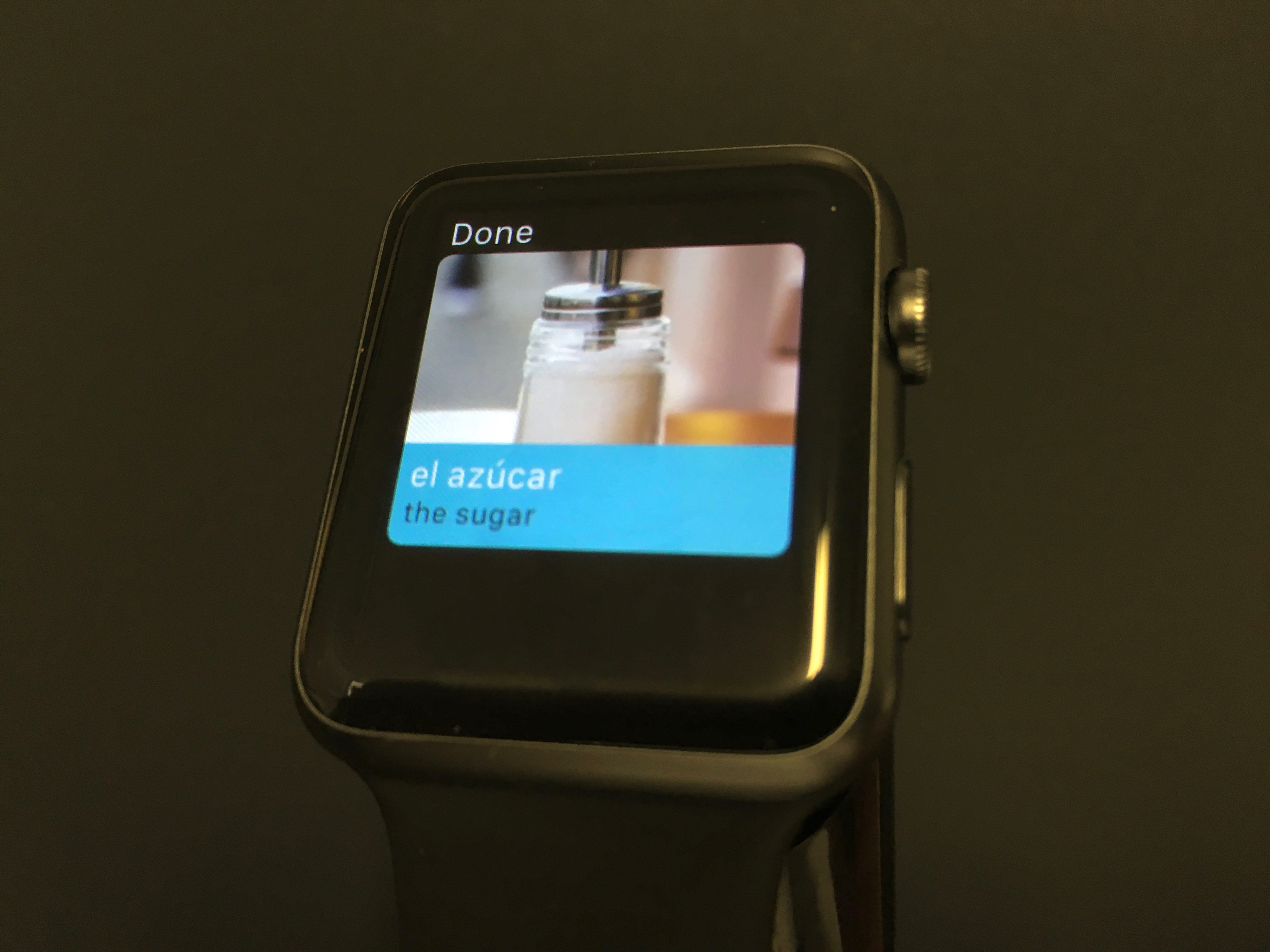
I’m pleased to present the first of what I hope will be an ongoing series of informational posts about Apple Watch apps that could potentially be used in higher education. The first app is Babbel, which is designed for learning foreign languages.
Babbel is a foreign language eLearning platform from the German-based company Lesson Nine GmbH. They currently make web- and mobile-based courses for 14 languages available via the Babbel web site and apps for iOS and Android. The Babbel iOS app is designed for both the iPhone and iPad, includes the Apple Watch app, and is a free download. A small number of lessons are available for free, but users eventually have to purchase additional lessons in order to complete a course.
What makes the watch app appealing is that the user can learn new vocabulary words in the context of their surroundings. After launch, the app uses the GPS to determine the user’s location, then finds nearby places of interest using integrated technology from Foursquare. The app presents a list of these attractions by category, which includes Cafés, Sports, Restaurants, and Health (there are a total of 18 categories). The user selects one of the nearby attractions and is presented with a word that would typically be associated with that attraction’s category. They are then offered two possible translations for this word, and the user must select one. If they are correct, it’s added to their “deck”, or collection of words by category; if they’re incorrect, they can try again in six hours. After trying three words, the app will impose a six hour break before allowing you to try additional words. According to the Babbel web site, you can learn up to 20 words per category, meaning the user could potentially learn 360 words per language via the watch app.
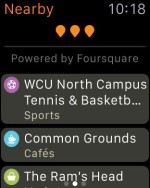
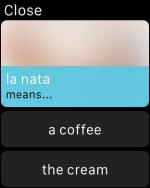
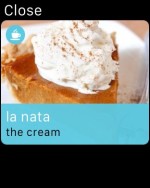
As an example, Babbel is able to locate four attractions near my on-campus office: a basketball court (Sports), two coffee shops (Cafés), and a student convenience store (Markets). When I selected a café, I was presented with a blurred picture and the Spanish word la nata, and my two choices were a coffee and the cream. I chose the cream, was told that I was correct, and the blurred image solidified into a picture of pie with whipped cream. I attempted another word, hacer la compra, answered incorrectly, and was shown a timer that indicated when I would be able to try again.
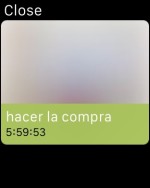
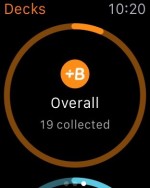
Lesson Nine was among the small group of developers who released their watch apps right when watch was released, and I have to give them credit for using the GPS and Foursquare to accomplish their goal of learning within the context of your environment. This was very creative, and I hope they will continue to improve and expand upon this idea.
Comments (0)